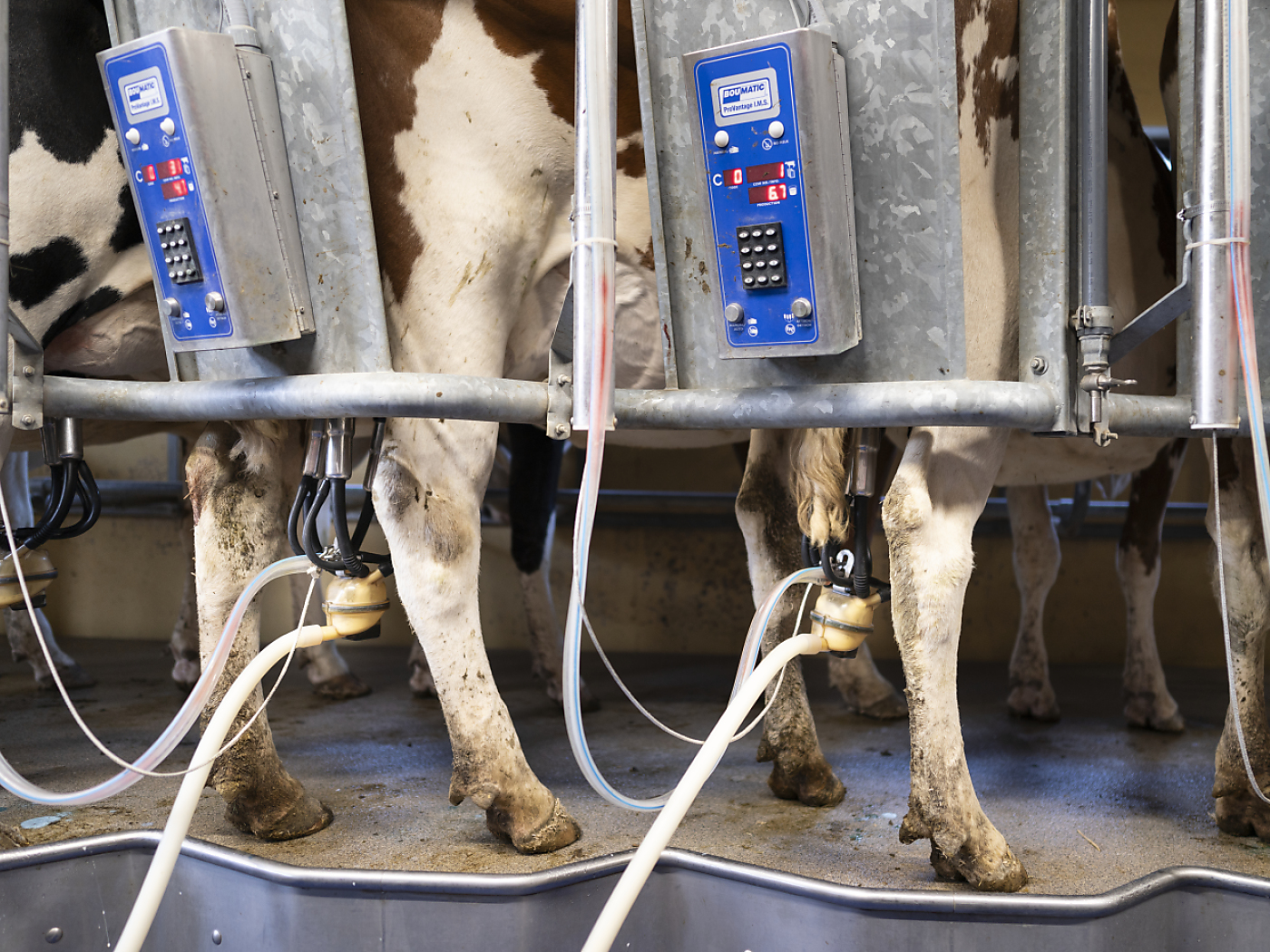Swiss urged to help the climate by eating more healthily

The Swiss government's nutritional recommendations can make a significant contribution to achieving Switzerland's climate objectives, according to an analysis by Greenpeace and WWF – provided that the most environmentally friendly foods are chosen.
+Get the most important news from Switzerland in your inbox
The government has set itself the target of reducing the carbon footprint of food by 25% by 2030 compared with 2020, and by at least two-thirds by 2050, the two environmental organisations pointed out on Monday. In September 2024, the government published new nutritional recommendations External linkthat take into account criteria related not only to health but also to the environment.
On behalf of Greenpeace Switzerland and WWF Switzerland, ESU-Services’ life cycle assessment specialists have analysed the extent to which this new food pyramid meets the government’s objective.
The calculation compares the impact of current average Swiss consumption with the “Planetary Health Diet” – a diet developed by an international team of scientists to enable healthy, environmentally friendly eating worldwide – and with two variants of the new food pyramid (minimum and maximum).
Two scenarios have been taken into account in the Swiss nutritional recommendations, as there is considerable room for manoeuvre. For meat, for example, the recommended amount is 0-360 grams per week.
+ The Swiss have to eat less meat by 2050. Here’s how.
The calculation takes into account a maximum variant, in which all foods particularly harmful to the environment – in particular meat and dairy products – are consumed in the maximum recommended quantity. The minimum variant is based on the most environmentally friendly application of the recommendations, i.e. a vegetarian diet, with no meat or fish.
Calculations indicate that a diet in line with the minimum variant of the nutritional recommendations would make a significant contribution to an environmentally friendly diet and to the government’s climate objectives.
This diet has half the impact on the climate of a diet with the maximum variant, and two-and-a-half times less than the current diet. It even has less impact on the climate and the environment than the Planetary Health Diet.
Binding agreements needed
Individuals and households are not the only ones involved in reducing the impact of food. Political authorities and economic players also bear a responsibility, say the two NGOs. Change requires concrete measures on the part of each and every one of them.
+ Government’s new climate strategy wants Swiss to eat less meat
These include removing the wrong incentives currently in place in politics, retail and catering, which encourage behaviour that runs counter to sustainable, healthy eating. This requires binding agreements, they say.
“Political authorities and the retail trade set framework conditions that determine the way we eat,” in particular by consuming too much meat and dairy products, stresses Mariella Meyer, sustainable food specialist at WWF, quoted in the press release.
“The analysis shows that an environmentally friendly food system is possible within the framework of the dietary recommendations,” adds Barbara Wegmann, consumer expert at Greenpeace Switzerland.
“What remains to be seen is whether politics, the retail and wholesale trade and consumers are prepared to take courageous and consistent action to make this change in consumption possible. In this respect, agricultural policy 2030 is a great opportunity,” she says.
Translated from French by DeepL/ts
More
This news story has been written and carefully fact-checked by an external editorial team. At SWI swissinfo.ch we select the most relevant news for an international audience and use automatic translation tools such as DeepL to translate it into English. Providing you with automatically translated news gives us the time to write more in-depth articles.
If you want to know more about how we work, have a look here, if you want to learn more about how we use technology, click here, and if you have feedback on this news story please write to english@swissinfo.ch.

In compliance with the JTI standards
More: SWI swissinfo.ch certified by the Journalism Trust Initiative



















You can find an overview of ongoing debates with our journalists here . Please join us!
If you want to start a conversation about a topic raised in this article or want to report factual errors, email us at english@swissinfo.ch.